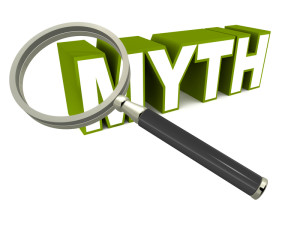
When it comes to determining how a person is likely to act or react at any given time, which factor plays a bigger role: personal character or the situation the person is in?
Research can be found that supports both sides, but I think we intuitively believe character plays the bigger role. We’re pretty sure we know how we would react even in situations we’ve never experienced because we believe we know who we are. And we behave consistently often enough that this belief isn’t usually tested or threatened. Feeling certain we know what we would do leads to many of the critical judgments we make about other people’s behavior.
On the other hand, classic experiments like Philip Zimbardo’s prison experiment and Stanley Milgram’s obedience experiments indicate that in some situations, ordinary people who would not otherwise do so are capable of behaving very badly toward their fellow humans. There has also been quite a bit of research on the effect of our environment on what we think and feel and the way we act. So before passing judgment on others, it has been suggested, we should try to “walk a mile in their shoes.”
This fascinating topic is addressed in one chapter of philosopher Julian Baggini’s book, The Ego Trick, which is one of the best books I’ve read so far this year.
The answer to the question of which plays a bigger role, character or situation is, not surprisingly, it depends.
When someone’s character is variable, the situation plays a bigger role in determining action. But when someone’s character is consistent, the situation plays a lesser role.
It’s more interesting than that, however.
Passive or Active
Some of our character traits are passive: they are “the set of dispositions we just happen to have as a result of our genes, upbringing and experience, without any particular effort on our own part.”
And some of our character traits are active: they are “the set of dispositions that we have because we’ve worked on developing them. To use a philosophical term of art, dispositions are active if they are the result of an individual’s attempts at self-constitution, to build who they are.”
As Baggini states, you can’t tell from the trait whether it’s passive or active. Someone who behaves in an extraverted manner may have had that tendency all along, which would make the trait passive. Or a person with a tendency toward introversion may have decided to try to become more extraverted, in which case their extraversion would be considered an active trait. He also says that “in real life, traits are never purely active or passive. Rather, they tend to greater activeness the more they reflect deliberate efforts to mould our own behaviours.”
Variable or Consistent
He further distinguishes passive traits as either variable or constant across situations, and he does the same with active traits. This leads to four trait categories:
- passive and variable
- passive and constant
- active and variable
- active and constant
All of us have traits in each of those categories. All of us are affected to one degree or another by the situations we’re in. However, the more our traits lean toward the passive and the variable, the more likely we are to be affected by situations. And the more our traits lean toward the active and the constant, the less likely we are to be affected by situations.
Results of behavior studies indicate that the majority of people behave differently across different situations and only a minority behaves consistently.
The evidence is that unless you try to cultivate traits, whether you display them will depend more on circumstances than on you. So consistency in character is something to be created; it does not arise organically.
As philosopher Christine Korsgaard says:
Beliefs and desires you have actively arrived at are more truly your own than those which have simply arisen in you.
The Takeaway
- If you want to be less at the effect of your circumstances, one way to do that is to make a deliberate effort to cultivate those character traits you value.
- Don’t be entirely surprised when your behavior is “out of character.”
- And don’t be so sure you would behave differently in a given situation than other people who are in it are behaving.
 These six beliefs are so pervasive they seem to be embedded in our culture. Most of them are meant to be motivational, but because they aren’t true, belief in these myths can have unintended consequences that harm rather than help. Ultimately, we need less external motivation and more straightforward education about how the brain and the mind actually work. Then we’ll be able to generate our own motivation—from inside.
These six beliefs are so pervasive they seem to be embedded in our culture. Most of them are meant to be motivational, but because they aren’t true, belief in these myths can have unintended consequences that harm rather than help. Ultimately, we need less external motivation and more straightforward education about how the brain and the mind actually work. Then we’ll be able to generate our own motivation—from inside. It’s one thing to look before you leap. It only makes sense to consider the potential outcome or consequences of an action you’re about to take. But it’s another thing altogether to believe you can fully determine—or even guarantee—the outcome based on the amount of thinking you do about it.
It’s one thing to look before you leap. It only makes sense to consider the potential outcome or consequences of an action you’re about to take. But it’s another thing altogether to believe you can fully determine—or even guarantee—the outcome based on the amount of thinking you do about it.
 Mental clarity means freedom from ambiguity or clearness of perception.
Mental clarity means freedom from ambiguity or clearness of perception.